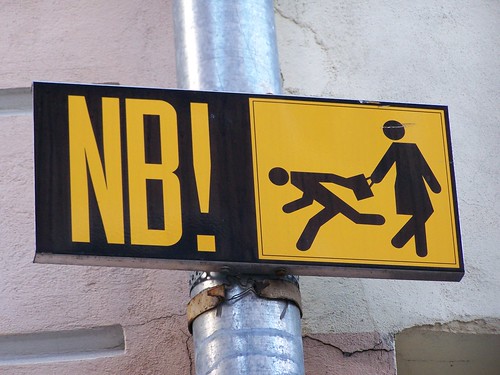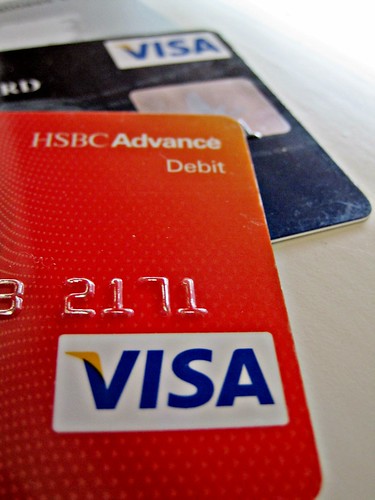Four Things You Need to Protect Your Belongings From
Posted by Ariane on Nov 18, 2013 in Planning | 0 comments
Summary: How can you protect your precious belongings while traveling? Here are four different things that could happen to you while traveling, and that you need to be prepared for to avoid extra expenses or frustration that could spoil your travels.
Long-term travel is definitely a different way of life—not just because you keep moving from one place to another, but also because you rely on what you have, and what you have is basically what you can carry. It is like carrying your home with you—in fact, we’re almost like turtles. Of course, you can also rely on insurance if you have good coverage—but no one likes to have their laptop or favorite clothes damaged or broken.
1- Losses—How to not Lose Your Stuff
Of course, when we lose something we never mean to—even if we do feel guilty afterwards and tell ourselves, “I should have been more careful…” Regular checks of your belongings can help—especially when you leave a place—but while traveling sometimes you’re just so tired that it becomes easy to forget something in a bus or a taxi.
- Bags
Bassel almost lost his brand new passport in Toronto and his bag in the subway in New York. Since then, he ties his handbag to his pants with a handmade phone cordon and locker. Bassel also lost his lenses while swimming in the Galapagos without goggles (but it is difficult to tie your lenses!).
- Laundry
The second situation where you can easily lose belongings is in your laundry.
You need to check your pockets, and then what we usually do is to write down the clothes we give the laundry. Then, if something is missing, it is easier to see it right away rather than when you’re already in the next city.
2- Theft—how to avoid theft
Not all hotels provide a safety box. We use a lock and cable and lock a bag inside. That said, we have never had any problems in hotels, and you probably won’t either.
In big cities and crowded place there are more chances to find pickpockets. I almost got my mobile phone stolen in Paris, and turned around just before it was too late—the guy had already opened my bag and I didn’t feel anything at all. I turned around just by chance. I was lucky.
The best thing to do is to take only what you need…
…and then keep it in a difficult place to reach or open.
3- Scams—How to Avoid Scams
Scammers are usually clever people, but they take advantage of your trust above all. Still, there are steps that can protect you from bad scams, such as credit card scams.
- Don’t use an open Wi-Fi. Instead, buy a modem to do your online transactions.
- Don’t use your credit card in small shops or restaurants.
- Change your money inside banks if you can rather than ATMs.
- Stay vigilant when someone approaches you in the street (which is kind of inappropriate, unless there is an apparent reason for that) furthermore if they are two or more.
4- Deterioration—How to Properly Preserve Your Belongings
- Electronics
Depending on where you are traveling and the type of climate you encounter, you need different kinds of protection. Electronic devices and cameras are very sensitive to everything anyway, whether it is rain and humidity or sand, dust, high temperatures and even altitude!
First, check the website of your electronic brands to learn about their fragility (which we did in La Paz after having heard that altitude could damage computers).
Then use cover bags, wallets, waterproof wallets and hard cases to protect your electronics.
Your bags won’t be placed gently in the luggage compartments of buses and planes—they’re gonna be thrown just like garbage bags. You need to know that! That’s why:
The way you pack is also important. I usually put everything that could break in the middle of my bag so that it is surrounded by clothes. This helps it to avoid shocks. We have bag covers as well.
- Clothes
For clothes, we started traveling with normal clothes and ended up with clothes two sizes smaller!
I would recommend that you buy clothes made of material that doesn’t shrink.
Or buy your clothes one or two sizes bigger.
Whatever you do, don’t take valuable or delicate clothes with you while traveling. You wear the same clothes all the time, so they don’t last as long as normal. Plus, it isn’t like you are going to the office, eating your lunch in a nice restaurant and taking a clean bus to come back. Your clothes will suffer!
For more information about our equipment, check out our related posts.





 Bassel & Ariane, a couple who quit their jobs to realize their dream "traveling around the world". This travel website is our way to share with you the amazing adventures we have had, with the goal of helping to make your own travels more enjoyable.
Bassel & Ariane, a couple who quit their jobs to realize their dream "traveling around the world". This travel website is our way to share with you the amazing adventures we have had, with the goal of helping to make your own travels more enjoyable.